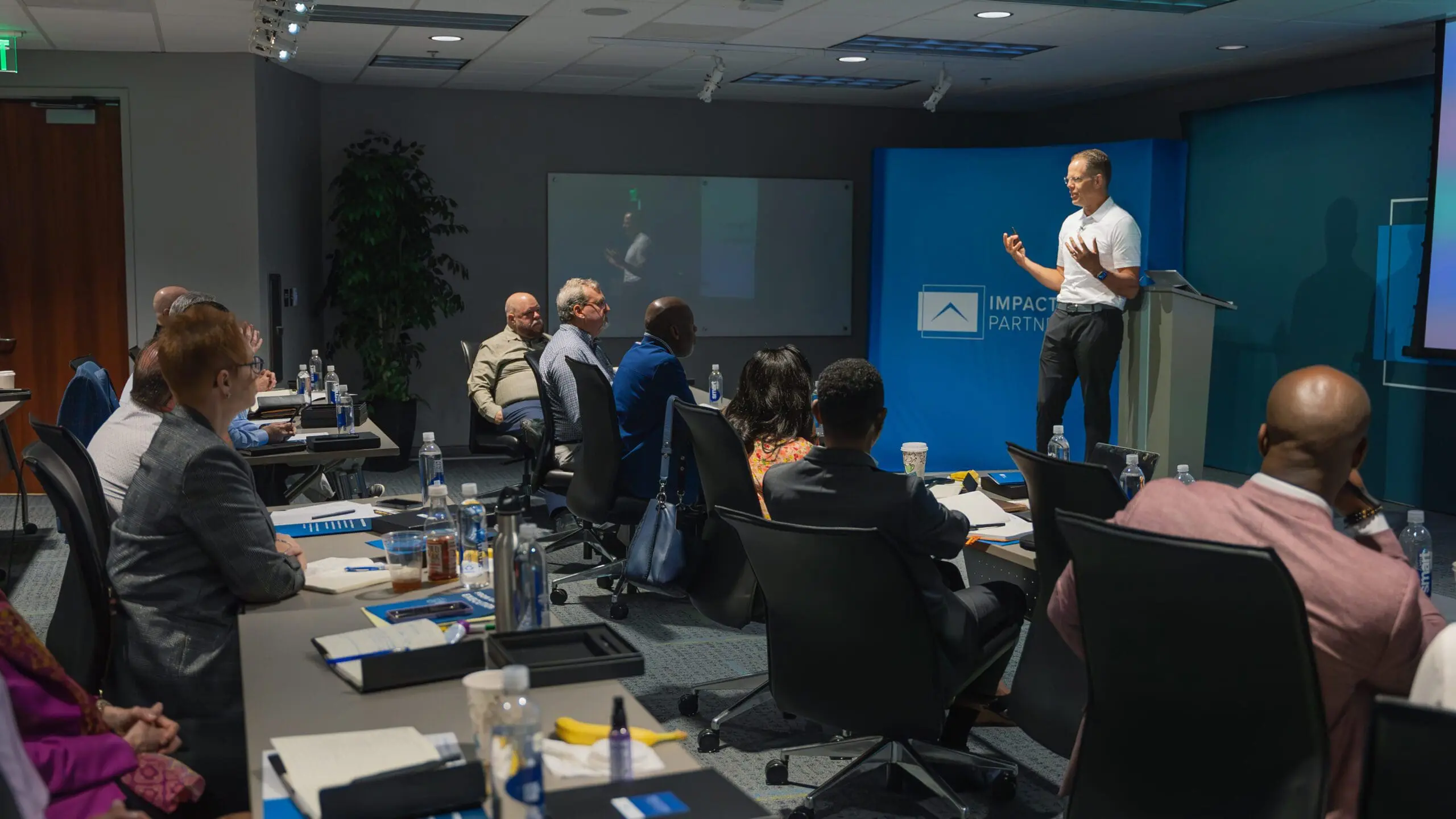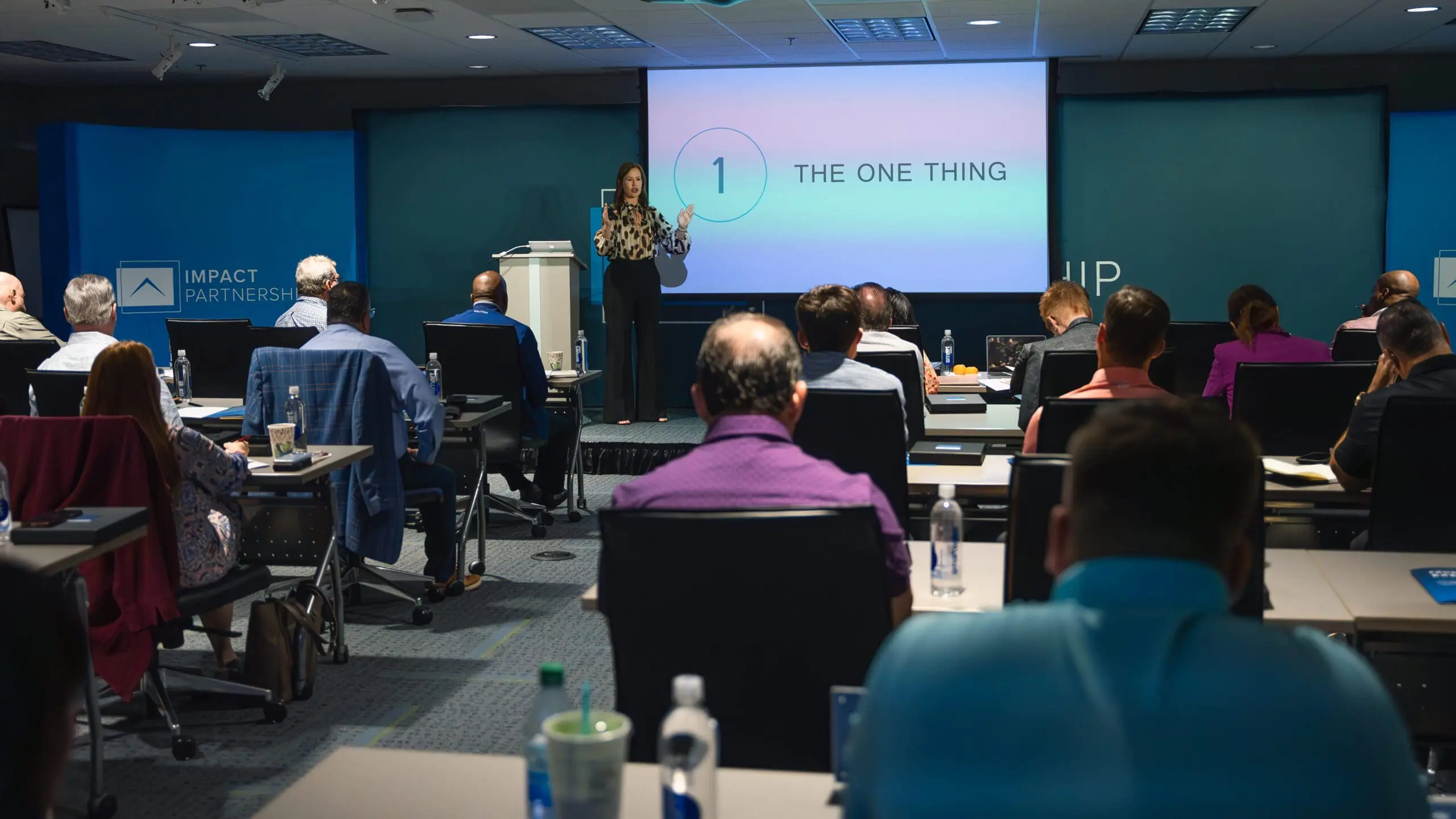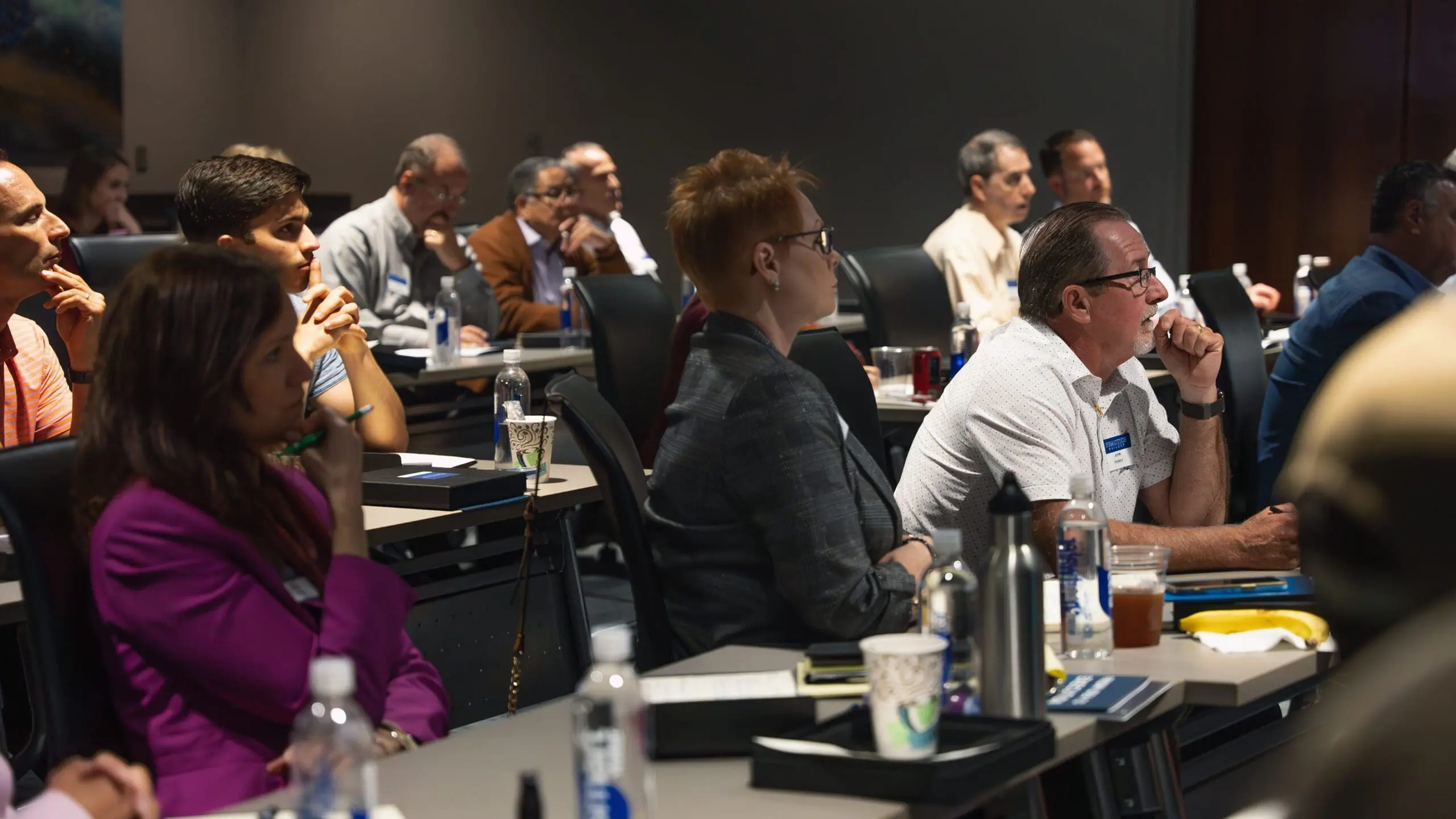Last month, Impact Partnership proudly hosted the latest gathering of Practice Builder, where top advisors from all across the country came in to hone their practices (both their business and their methods) and listen to fellow successful advisors outline their keys to success.
Didn’t get a chance to attend, but still want the inside details? Need the proven tips and tricks on growing your practice into an industry titan? Don’t worry — we have the rundown of the top-level topics covered by your fellow financial advisors.
Overview
Practice Builder is always a formidable meeting of business minds, discussing their inside tips and tricks on how they continue to succeed in their industry. Hosted by the Impact Partnership, financial advisors find in Practice Builder the unmissable opportunity to hear what works, what doesn’t, and how to turn constructive advice into positive habits. With speakers ranging from independent financial advisors to Impact’s own executive staff, there’s no shortage of insight on display. Here, we’ll briefly recap some subjects covered over two days of talks and conferences.
$50 Million Plus Mindset
Fifty million dollars is quite a large sum, isn’t it? Enough to make a tremendous difference for your company, right? How close is your practice to meeting that goal?
One of our top advisors spoke on how they approach this mindset, how adapting certain practices helped them realize their goal, and how Impact Partnership helped them construct and realize that process. Below are just a few topics they covered during their talks.

Structuring Your Office For Growth
It’s a well-known phrase: you gotta spend money to make money. It’s not a secret, either, that that money should be spent in the right ways and toward the right energies.
Our advisor talked at length about where he focuses their energy throughout their growth practices, including hiring new employees (tip: think locally and efficiently!), emphasizing a productive, collaborative, open culture within the company, writing by hand all job descriptions and skill levels — from the entry level positions to the top executives — and addressing soberly overlaps and mistakes.
How to Host Seminars
If you’re reading this blog post — thanks again for that! — then you’re probably already familiar with the basic in and outs of hosting seminars. However, we’re all always striving to improve our stage presence, connect better and deeper with our audience, and speak more clearly, fluidly, and precisely about the topics about which we’re passionate.
Most importantly, be comfortable, be courteous and be confident. Nothing can tank a seminar quite like a quivering speaker. This is your element! Thrive! Get excited and your crowd will follow.
Increasing ROI
Getting a good return on your investment — that is, the effort you put in to building your practice — means you’re aiming at the right goals and pursuing the best strategies. Increasing that return on investment is vital to realizing those goals and strategies. Our advisor spoke on the mix of incoming clients he aims to maintain: 40% from his existing books, 30% from seminars and workshops, and 30% from client referrals. Hewing to these ratios, for them, ensures a tight focus on expansion goals and lets them know how healthy their return on investment is, and if one category needs more attention.
Appointment Process
How are you getting potential clients into your office? What’s your method to turn them into current clients? With what are they walking back out? It may be time to shake things up and take another look at how you’re getting folks through the door. Consider the ease with which people can get in touch with you, how much information you’re asking up front, and what you might be able to offer them in return, such as a preparation worksheet or a pamphlet on Social Security. (Impact happens to have both, and more, should you want them!)
Putting Ideas into Action
Here, our team discussed a method by which an advisor can generate ideas, narrow them down into practical, actionable items, and create a process by which they can get started making their ideas a reality.
First, think of 25 ideas about how to improve your practice, big picture views about what you could do differently both day-to-day and long-term. Then, narrow those ideas down to 15: ten ideas you can incorporate in the next 12 months and five you can execute immediately.
From the five ideas, choose three ideas in the order in which you plan to attack them. Now you have clear objectives to pursue — and that’s no small feat!

Know Your Number
In setting goals and building up your practices, it can be easy to get lost in the abstract. Setting vague goals like “expand into new territory” means you have a vague at best path to achieving them — how does that help?
Keep your goals simple and concrete by knowing your numbers: how many clients do I want to add? What percent of revenue will I reinvest in my practice? How much am I going to make this year, and how close is that to how much I want to make?
It all comes down to a simple question: if you don’t know your number, how can you grow?
Building a Referral Community
Wouldn’t it be great if you could just generate new clients automatically? To watch one leave through the front door satisfied and secure, and have another come through the door right after?
Good news! It’s not that difficult. But! You will have to build it yourself. Well, I suppose not yourself yourself — not when you have Impact at your side!

During Practice Builder, our speakers concentrated on building referral communities, networks which foster an environment of friendship and connectivity. Far from an uphill slog, it’s as easy as broadcasting yourself as a member of your own community. Hosting client appreciation events (otherwise known as CAEs) is a great way to do this! Host an event in your area for clients and their friends and put a face to your practice. (Need some ideas to get started? Check out Impact’s blogs about CAEs here, here and here!)
Speakers also discussed the benefits of a client advisory board, a roundtable group of your clients who can give feedback and provide insight as to how your process are currently working. They can identify pressure points you may not have seen, or can point you in the right direction with new ideas and ways of conducting daily business.
Lead Conversion
While valuable, leads are not the end goal of your — or any — practice. They are means to the end of a committed client. What’s the point of a lead if they aren’t converting?
That’s why Impact devoted a portion of Practice Builder our Conversion Coach program, built to help financial advisors close the deal. We spoke on some of the best practices for advisors to follow, such as calling leads the same day they signed up, touching base via email, and responding to respondents who may be reluctant to schedule a meeting.
You can check out more about our Conversion Coach program on YouTube, or get in touch with us!
That’s all we’d like to talk about — for now! If this interests you, inquire with us about how you can participate in the next Practice Builder series.
2960904-0623